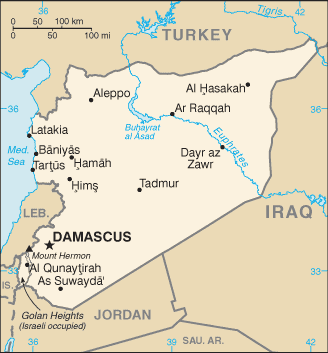Due to losses on the battlefield in Syria, this has led the Turkish Junta and the rebel (ISIS) groups at the Geneva peace talks to condemn the Syrian gains, and has Western offiicals lashing the effort as well, with French Foreign Minister Laurent Fabius terming the offensive that broke the siege “brutal, and accused it of “torpedoing peace efforts.”
The rebels went into the peace talks with a flurry of demands, including a full ceasefire, though none of those demands was ever formally agreed to. Ironically, one of their demands was to end the siege of Syrian towns, something which they presumably only intended to see happen to the rebel-held towns surrounded by the military, and not vice versa.+
The UN also criticized the offensive, saying it displaced “hundreds” of civilians from towns near the area. It did, however, end up freeing an estimated 60,000 civilians from siege conditions, so it’s going to be difficult for them to spin as a major humanitarian blow.+
*****
Syria’s gains against rebels in the Aleppo Province has ended a siege on some 60,000 Shi’ite civilians and also is a blow for the rebellion’s efforts to keep contesting the city of Aleppo. Yet the biggest loser, by some analysts’ reckoning, may be Turkey.+
 In taking back the area around the Shi’ite towns, the Syrian military also regained part of the supply line between the Azaz border crossing and Aleppo, meaning Turkey can’t readily use that border crossing to throw weapons at the rebel factions in Aleppo.+
In taking back the area around the Shi’ite towns, the Syrian military also regained part of the supply line between the Azaz border crossing and Aleppo, meaning Turkey can’t readily use that border crossing to throw weapons at the rebel factions in Aleppo.+
This shifts Turkey’s aid focus in northwestern Syria will likely have to start flowing through Idlib Province, held by al-Qaeda’s Jabhat al-Nusra. Turkey has long denied backing al-Qaeda in Syria, but an awful lot of its aid has historically been going through their territory.+
The big beneficiaries of this will, in addition to the Shi’ite civilians no longer under siege, will be the Kurdish YPG, which was already planning to push across the Euphrates into ISIS territory along the border. Without the crossing at Azaz, Turkey is in less of a position to arm Islamist factions to attack the Kurds, though they’ve also threatened direct intervention, which may become more likely in the absence of the crossing.
comments powered by HyperComments

